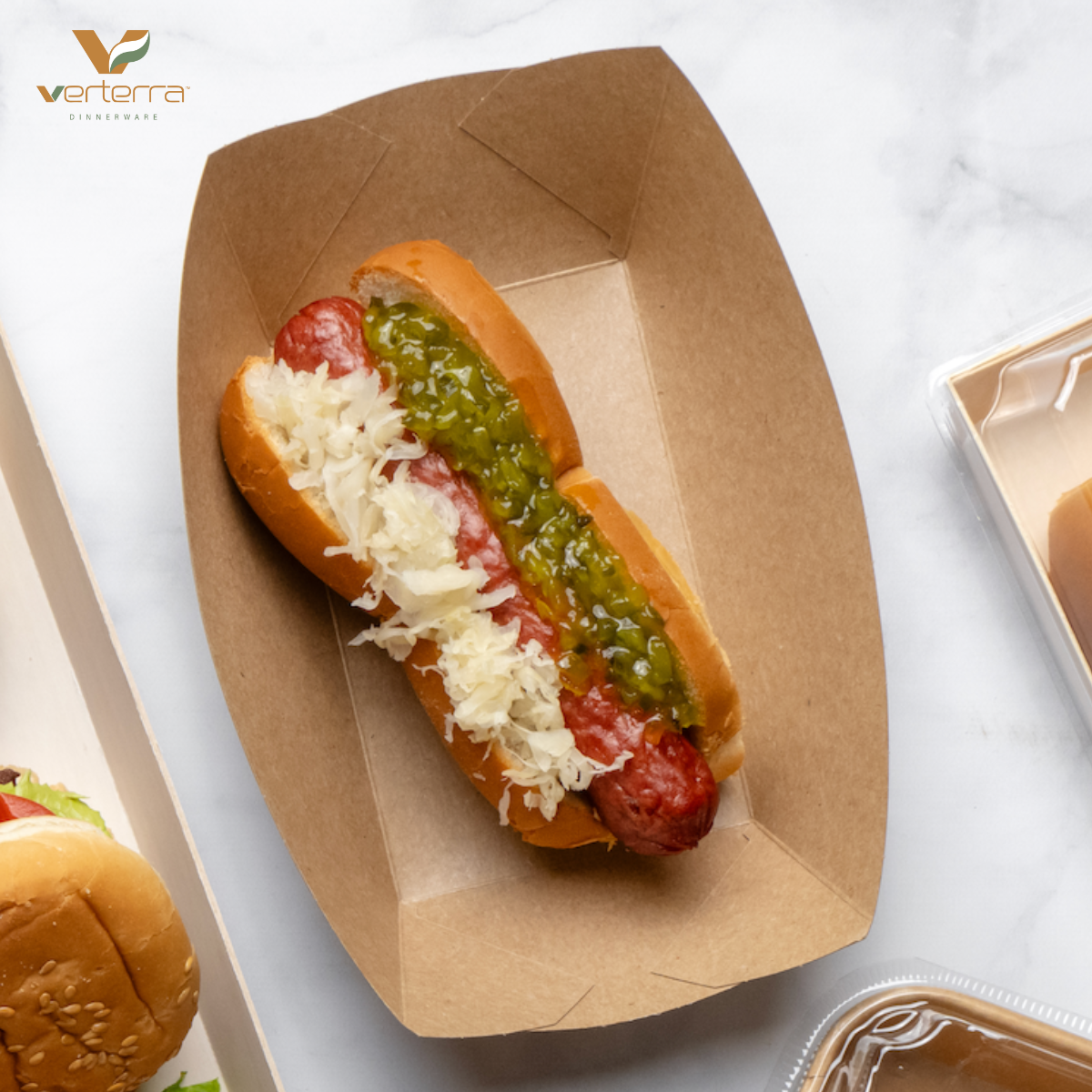
Sustainability as a Selling Point: How Compostable Tableware Can Elevate Your Restaurant’s Brand
In today's competitive restaurant industry, sustainability isn't just a buzzword—it's a powerful selling point. More than ever, consumers are making conscious choices about where to dine, seeking out businesses that align with their values. One key way for restaurants, hotels, and catering services to stand out is by adopting eco-friendly practices, such as the use of compostable tableware. Not only does this decision reduce environmental impact, but it also boosts a brand's image, attracts eco-conscious diners, and fosters customer loyalty.
Why Sustainability Matters in the Hospitality Industry
The hospitality industry generates a significant amount of waste, much of which ends up in landfills. This has led many businesses to rethink their operations and adopt greener practices. One effective and relatively simple change is switching to compostable tableware. As diners become more aware of environmental issues, they appreciate—and even expect—restaurants to reduce their carbon footprint.
But beyond just pleasing customers, going green has direct benefits for businesses. According to a survey by Nielsen, 66% of global consumers are willing to pay more for sustainable products, with that number climbing to 73% among millennials. For restaurants and catering services, this means that sustainability can be a genuine selling point, helping to differentiate their brand and potentially increasing their bottom line.
The Role of Compostable Tableware in Branding
Compostable tableware, like that from Verterra, is a tangible way to showcase a commitment to sustainability. Not only does it send a clear message about the business’s values, but it also enhances the dining experience. When a restaurant uses eco-friendly products, it tells the customer: "We care about you, and we care about the planet."
Verterra's 100% BPI certified compostable palm plates, bowls, and utensils are made from renewable resources, such as fallen palm leaves, and are 100% biodegradable, offering an eco-friendly alternative to traditional plastic or paper options. By incorporating these products, restaurants can align their brand with the growing sustainability movement, drawing in diners who prioritize eco-friendly choices.
Case Studies: Sustainability in Action
Several businesses have successfully used compostable tableware to elevate their brand image and win over eco-conscious customers. Here are a few examples:
1. Farm-to-Table Restaurants Embracing Green Practices
Restaurants like Blue Hill in New York City and Chez Panisse in Berkeley have built their reputations around sustainability. By integrating locally sourced ingredients and eco-friendly practices such as using compostable tableware, they have attracted a loyal following of customers who value ethical dining. These establishments have positioned themselves as leaders in the green restaurant movement, emphasizing both the quality of their food and their commitment to environmental stewardship.
2. Hotels and Resorts Going Green
Luxury hotels like the 1 Hotels chain have made sustainability a core part of their brand identity. By adopting compostable tableware for their dining services, they reinforce their dedication to environmental responsibility while offering guests an elevated experience that aligns with modern eco-conscious values. This commitment to sustainability has helped them differentiate themselves in the crowded luxury hotel market, resulting in positive press coverage and increased guest loyalty.
3. Catering Services Making an Impact
Catering companies like Heirloom Catering in the Bay Area have embraced eco-friendly practices by using compostable products at events. Not only does this decision reduce waste, but it also appeals to clients looking to host sustainable events. For many businesses in the catering industry, compostable tableware is a key selling point, especially for weddings, corporate events, and other gatherings where sustainability is a priority.
These examples demonstrate how compostable tableware isn't just a functional choice—it's a branding opportunity. By aligning their services with sustainability, businesses can tap into a growing market of environmentally conscious consumers.
How to Implement Compostable Tableware in Your Restaurant
If you're considering adopting compostable tableware for your restaurant, hotel, or catering business, here are a few tips to help you get started:
- Start Small: You don’t have to overhaul your entire operation overnight. Start by introducing compostable items like straws, takeout containers, or utensils and gradually expand to a full suite of compostable products like those offered by Verterra.
- Educate Your Staff: Your employees play a critical role in communicating your sustainability efforts to customers. Train them to explain why your restaurant uses compostable tableware and how it benefits the environment. This will help reinforce your eco-friendly message at every customer touchpoint.
- Promote Your Commitment: Use your website, social media platforms, and in-store signage to highlight your sustainable practices. Let your customers know that you’re using compostable tableware and why it matters. Sharing your commitment to the environment will not only attract like-minded diners but also build long-term loyalty.
- Partner with Local Organizations: Collaborating with local environmental organizations or sustainability influencers can help boost your visibility and credibility. Consider hosting a "green dining" event or donating a portion of your profits to an eco-friendly cause.
The Bottom Line: Sustainability is Good for Business
By adopting compostable tableware from companies like Verterra, restaurants, hotels, and catering services can enhance their brand’s image, attract eco-conscious customers, and make a positive impact on the planet. In an increasingly competitive market, sustainability can be the differentiator that sets your business apart.
Ultimately, when you invest in sustainable practices, you're not just helping the environment—you're building a stronger, more resilient brand that resonates with today’s eco-conscious consumers. So, why not make the switch to compostable tableware and elevate your brand’s commitment to sustainability? Your customers—and the planet—will thank you.
Also in The Dirty Dish

The Ultimate Guide to Food Boats
Food boats are more than just a convenient way to serve meals—they're a game-changer for eco-conscious food service businesses. From casual cafés to high-end catering, these biodegradable, stylish, and durable containers offer a sustainable alternative to plastic. But not all food boats are created equal. Verterra takes it to the next level with their innovative, chemical-free designs made from renewable materials like kraft paper and balsa wood. Want to know why top chefs and event planners choose Verterra? Read on to discover the ultimate guide to food boats and how they can transform your food presentation while protecting the planet.

Sustainable Elegance: Why Verterra’s Covered Catering Trays And Grab & Go Trays Are a Culinary Game-Changer
If you’ve ever hosted an event, run a restaurant, or catered a wedding, you know how important it is to balance practicality with presentation. That’s where Verterra’s covered trays come in—a line of sustainable, compostable trays that deliver on functionality while looking absolutely stunning.

The Future of Food Packaging: Why Compostable is the New Standard
As the global focus on sustainability intensifies, food packaging has emerged as a critical area for innovation. Consumers, businesses, and policymakers are increasingly demanding eco-friendly solutions to mitigate environmental harm caused by single-use plastics. Compostable products, like those offered by Verterra, are setting a new standard for food packaging, blending functionality with sustainability. This shift isn't just a trend—it’s a necessity driven by consumer expectations and environmental realities.
